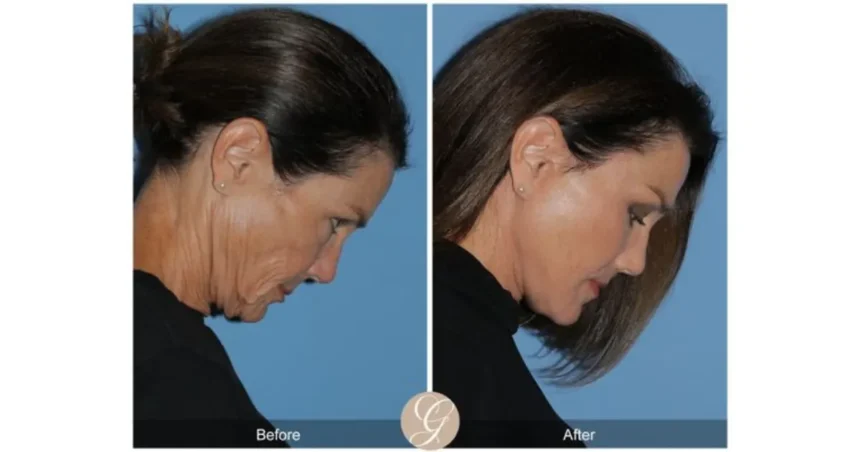When you’re thinking about getting cosmetic surgery, choosing the right surgeon feels like one of the biggest decisions you’ll ever make. You want someone skilled, trustworthy, and caring—someone who’ll help you look and feel your best. Dr Kevin Sadati Bad Reviews, a facial plastic surgeon based in Newport Beach, California, is a name that pops up often in the world of cosmetic surgery. He’s known for his work on facelifts, rhinoplasties, and eyelid surgeries, and many patients rave about his results. But not every story is glowing. Some patients have shared negative experiences, and those “Dr. Kevin Sadati bad reviews” have caught attention online. So, what’s the deal? Let’s dive into these reviews, break them down, and look at what they mean for anyone considering surgery with Dr. Sadati.
This article is written in a human, easy-to-read tone to help you understand the concerns raised in negative reviews, what might be behind them, and how to make an informed decision. We’ll also include a detailed table summarizing the key complaints and patterns to give you a clear picture. Whether you’re young or old, researching for yourself or a loved one, we’ll keep things straightforward and honest.
Who Is Dr Kevin Sadati Bad Reviews?
Before we get into the reviews, let’s talk about who Dr Kevin Sadati Bad Reviews is. He’s a board-certified facial plastic surgeon and otolaryngologist (an ENT specialist) who runs the Gallery of Cosmetic Surgery in Newport Beach. He’s built a reputation for his “Natural Facelift” technique, which promises long-lasting results with minimal scarring. Many patients choose him for his expertise in facial procedures like facelifts, neck lifts, and eyelid surgeries. His website and marketing highlight hundreds of successful surgeries and happy patients, and he’s got a strong online presence with a 4.4-star rating from 191 reviews on platforms like Birdeye. But even with all the praise, some patients have shared experiences that weren’t so positive, and those stories deserve a closer look.
Why Do Dr Kevin Sadati Bad Reviews Matter?
Bad reviews can feel like a red flag when you’re researching a surgeon. They’re often the first thing people notice, and they can make you second-guess your choice. But not every negative review tells the whole story. Sometimes, a bad experience comes from mismatched expectations, complications that are just part of surgery, or even miscommunication. Other times, they point to real issues that need attention. By looking at Dr. Kevin Sadati’s bad reviews, we can figure out what’s going on, spot any patterns, and help you decide if these concerns are dealbreakers or just part of the complex world of cosmetic surgery.
Common Themes in Dr Kevin Sadati Bad Reviews
After digging into reviews across platforms like RealSelf, Birdeye, and others, as well as legal cases mentioned online, a few common themes pop up in the negative feedback about Dr. Sadati. Let’s break them down in a way that’s easy to follow.
1. Dissatisfaction with Surgical Results
One of the biggest complaints is that some patients didn’t get the results they hoped for. For example, a patient on RealSelf shared a detailed story about a facelift and eyelid surgery in October 2020 that left her with issues like thick ridges of skin along her jawline, a disfigured eyelid, and a noticeable lump from a hematoma (a collection of blood under the skin). She said her face looked unnatural, and she now needs costly corrective surgery. Other reviews echo this, mentioning asymmetry, scarring, or results that didn’t match what was promised during consultations.
What to Know: Cosmetic surgery outcomes depend on a lot of factors—like your body’s healing process, skin type, or even how you follow post-op care instructions. Surgeons should set realistic expectations, but sometimes patients expect dramatic changes that aren’t always possible. That said, repeated complaints about unnatural results or major issues like disfigurement raise valid concerns.
2. Post-Operative Complications
Some patients reported complications after surgery, like prolonged swelling, infections, or problems with healing. One review mentioned a scratched cornea during surgery, which caused severe pain, and claimed Dr. Sadati provided numbing drops that weren’t safe for home use. Another patient described a drooping eyelid that flipped inward, making it hard to wear makeup or feel comfortable.
What to Know: Complications happen in any surgery, even with the best surgeons. The key is how they’re handled. If a surgeon dismisses concerns or doesn’t provide proper follow-up care, it can leave patients feeling frustrated and unsupported. These reviews suggest some patients felt their complications weren’t addressed well.
3. Issues with Informed Consent
A big issue in both reviews and legal cases is informed consent—or the lack of it. A lawsuit filed in 2018 by a patient named Jean Shir claimed Dr. Sadati didn’t fully explain the risks of her procedure, leading to complications she wasn’t prepared for. Another case, filed by a patient called Jane Doe, made similar claims, saying she wouldn’t have gone through with surgery if she’d known all the risks. These patients felt blindsided by outcomes they didn’t expect.
What to Know: Informed consent is a cornerstone of ethical surgery. Surgeons are supposed to explain all possible risks, benefits, and alternatives so you can make an informed choice. If patients feel they weren’t given the full picture, it can erode trust and lead to legal action.
4. Customer Service and Communication Problems
Several reviews mention issues with Dr. Sadati’s office, like long wait times, rushed consultations, or unhelpful staff. One patient said the office manager was friendly before surgery but became less responsive afterward. Others felt dismissed when they raised concerns about their results or complications, with some saying Dr. Sadati told them to “wait a year” for issues to resolve without offering clear solutions.
What to Know: Good communication is just as important as surgical skill. If a practice feels disorganized or dismissive, it can make a tough recovery even harder. These complaints suggest some patients didn’t feel heard or valued after their procedures.
5. High Costs and Need for Corrective Surgery
A recurring theme is the cost of surgery and the added expense of fixing problems. One patient said she paid $23,000 for a facelift and now needs double that amount for corrective surgery. Others mentioned feeling misled about pricing or the need for additional procedures to fix unsatisfactory results.
What to Know: Cosmetic surgery is expensive, and corrective procedures can add up fast. Transparency about costs upfront is crucial, and patients should ask detailed questions about what’s included and what might happen if results aren’t as expected.
Legal Issues: The Dr. Kevin Sadati Lawsuits
Beyond reviews, Dr. Sadati has faced legal challenges that amplify some of these concerns. The 2018 lawsuit by Jean Shir accused him of negligence, claiming her surgery led to physical harm. In 2022, a judge denied Dr. Sadati’s motion for summary judgment, meaning the case is moving forward. Another lawsuit, filed by Jane Doe, focuses on inadequate informed consent, alleging she suffered physical and emotional distress because she wasn’t fully informed about risks. These cases highlight issues like negligence, poor communication, and patient safety, which echo the themes in negative reviews.
What to Know: Lawsuits don’t always mean a surgeon is incompetent—complications can lead to legal action even if the surgeon followed protocol. But ongoing cases like these suggest there may be gaps in how Dr. Sadati’s practice handles patient care or communication.
The Other Side: Positive Reviews and Context
It’s worth noting that Dr. Sadati has plenty of positive reviews, too. Many patients praise his skill, professionalism, and natural-looking results. On Birdeye, he has a 4.4-star rating, with 161 five-star reviews out of 191. Patients often call him an “artist” and say his staff is caring and professional. Some negative reviews might come from unrealistic expectations or rare complications that aren’t entirely the surgeon’s fault. Cosmetic surgery is subjective—what one person loves, another might hate. Plus, online reviews can sometimes be skewed by strong emotions or isolated incidents.
Table: Summary of Dr Kevin Sadati Bad Reviews
Here’s a clear table summarizing the main complaints, how often they appear, and what they mean for patients. This is based on reviews and legal cases found online.
|
Complaint Type |
Number of Mentions |
Details |
What It Means for Patients |
|---|---|---|---|
|
Dissatisfaction with Results |
5+ |
Unnatural appearance, asymmetry, scarring, thick skin ridges, disfigurement. |
Results may not match expectations; ask for realistic outcomes during consultations. |
|
Post-Operative Complications |
3+ |
Swelling, infections, eyelid issues, scratched cornea, hematoma. |
Complications are possible; ensure surgeon offers strong follow-up care. |
|
Inadequate Informed Consent |
2+ (including lawsuits) |
Not fully informed about risks, leading to unexpected outcomes. |
Demand clear explanations of risks and benefits before surgery. |
|
Poor Customer Service |
4+ |
Long wait times, rushed consultations, dismissive responses to concerns. |
Look for a practice that values communication and support throughout the process. |
|
High Costs/Corrective Surgery |
2+ |
Expensive procedures, costly corrective surgeries needed afterward. |
Ask about all costs upfront, including potential follow-up procedures. |
What Can Dr. Sadati’s Practice Do Better?
Based on the reviews, here are a few ways Dr. Sadati’s practice could address concerns:
-
Better Pre-Op Consultations: Spend more time explaining risks and setting realistic expectations. Visual aids or simulations could help patients understand what’s possible.
-
Stronger Post-Op Care: Offer clear follow-up plans and quick responses to complications. Patients need to feel supported during recovery.
-
Improved Communication: Train staff to be empathetic and responsive, especially after surgery. Avoid dismissing concerns or delaying solutions.
-
Transparent Pricing: Be upfront about all costs, including the possibility of corrective surgeries, so patients aren’t caught off guard.
Advice for Prospective Patients
If you’re considering Dr. Sadati or any surgeon, here’s how to make a smart choice:
-
Do Your Homework: Read both good and bad reviews on sites like RealSelf, Birdeye, and Healthgrades. Look for patterns, not just one-off complaints.
-
Ask Questions: During consultations, ask about risks, recovery, and what happens if you’re not happy with the results. A good surgeon will be honest and thorough.
-
Get Second Opinions: Talk to multiple surgeons to compare their approaches and make sure you’re comfortable.
-
Check Credentials: Dr. Sadati is board-certified, which is a good sign, but verify certifications and experience for any surgeon you choose.
-
Understand Risks: No surgery is risk-free. Make sure you’re okay with the potential downsides before signing up.
The Bigger Picture: Cosmetic Surgery Challenges
Dr. Sadati’s bad reviews aren’t unique to him—cosmetic surgery is a tricky field. Patients often have high expectations, and even small imperfections can feel like failures. Complications, while rare, can happen to anyone. And because cosmetic surgery is elective, patients might feel extra frustrated if things go wrong. The lawsuits and negative reviews highlight how important trust, communication, and transparency are in this industry.
Final Thoughts
Dr Kevin Sadati Bad Reviews is a skilled surgeon with many happy patients, but the negative reviews and lawsuits can’t be ignored. Complaints about unsatisfactory results, complications, poor communication, and informed consent issues suggest there’s room for improvement in his practice. If you’re thinking about surgery with Dr. Sadati, weigh the positive and negative feedback, ask tough questions, and make sure you feel confident in your choice. Cosmetic surgery is a big step, and you deserve a surgeon who makes you feel safe and heard.







